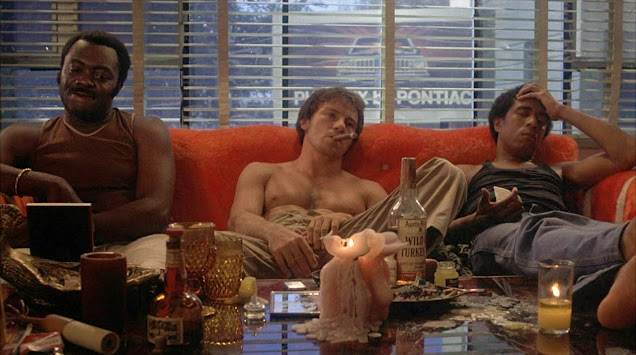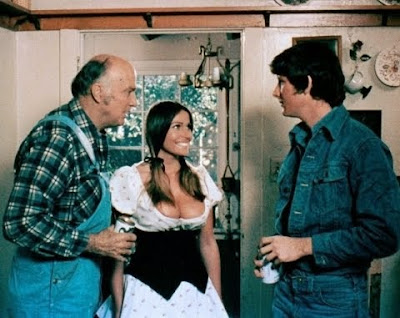Blue Collar
SPOILERS
1978's BLUE COLLAR has one of the most revealing and disturbing final shots of any film I can recall. It's a freeze frame of two characters, former friends, who've found themselves on either side of a great divide. A gulf separating management from employee. A terrible, though inevitable climax. The more I think on it, the more perfect it is. It just couldn't end any other way.
Writer Paul Schrader, known for TAXI DRIVER and RAGING BULL, made his directorial debut with BLUE COLLAR, and his screenplay (co-penned with brother Leonard) fits in well with his other studies of alienation. The characters of Zeke (Richard Pryor, showing some real acting chops), Smokey (Yaphet Kotto), and Jerry (Harvey Keitel), good buddies and coworkers in a Detroit auto plant, are classic Schrader lower middle class Everyman misfits, ne'er do wells who find themselves looking in on, beating the wrong side of the glass of the American Dream. Forever just trying to get even a sliver of the pie, to catch a break. They are poorly treated by management and even their union. They're struggling, constantly in debt. Jerry can't afford proper dental care for his daughter, who resorts to bending paper clips over her teeth.
The trio blows off steam at the bowling alley and especially with wild parties at Smokey's place. Schrader invites us into the debauchery, one of the men's few outlets from a hard luck existence. The carefree mood of these scenes nicely builds a gradual uneasiness, a feeling that a great reckoning is ahead. When it is ill-advisedly decided that the friends will rob the safe at their union's office, they find precious little cash but a ledger that points to illegal activity. How to use this evidence drives the midsection of the film, leading to tragedy, pointing down to its sad conclusion.
The Schraders explore how the friendship among the men changes, unravels. How the individual is always crushed against the corporate, including those who espouse to protect them - the unions. BLUE COLLAR is especially critical of them, of their leaders who may have once fought for the common man but are now just as corrupt as the overlords who exploit their workers. It's a bleak portrait of America, of an industry that would entirely implode decades later. In the 21st century, the skills of these assembly line workers no longer guarantee food on the table. To think that for many years a laborer skilled with his or her hands could actually afford to buy a house and a life for their families. But blue collar jobs are increasingly obsolete. A remake/rethink of this story, updated to modern times, might be even more cynical.
But it comes back to the individuals. The guys have very different personalities but share a camaraderie and work ethic that is all but ignored and destroyed by film's end. This was a solid first picture for Schrader.



Comments